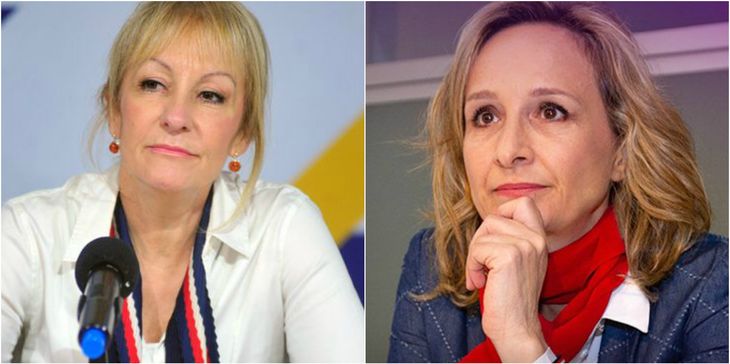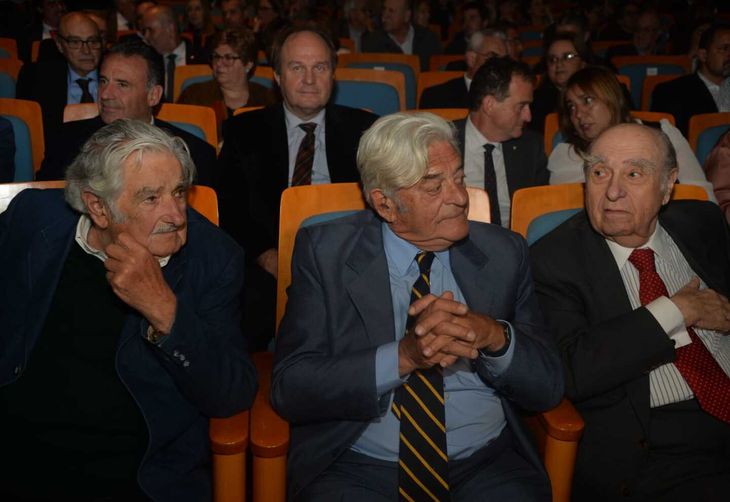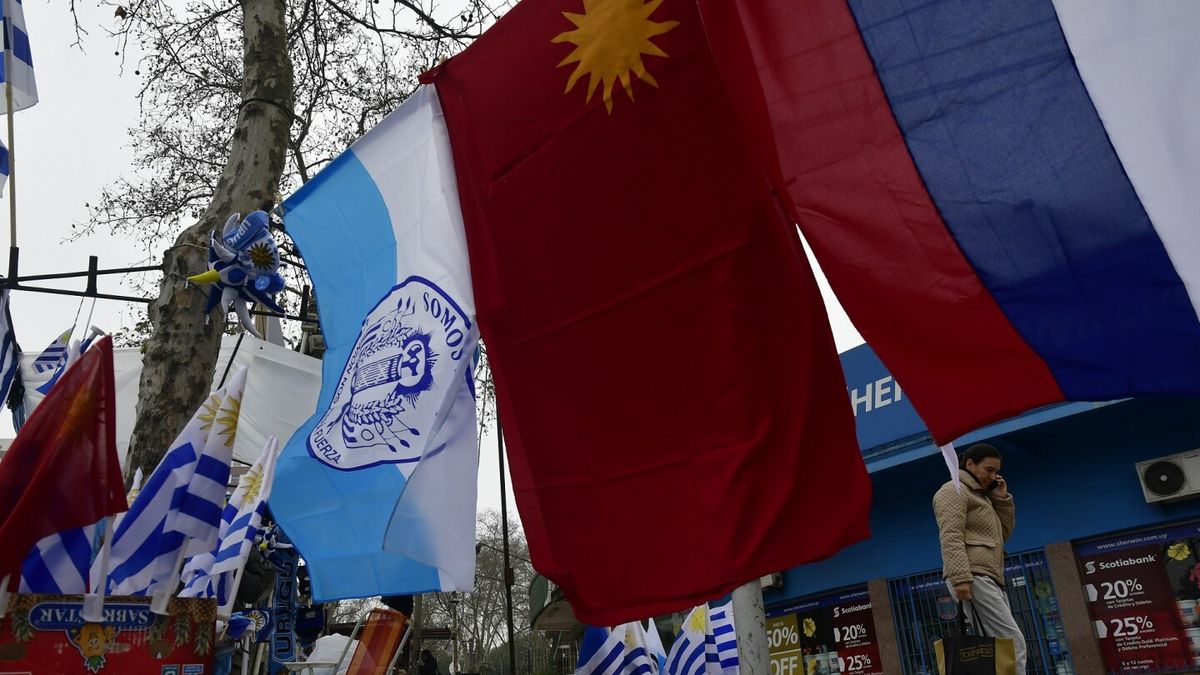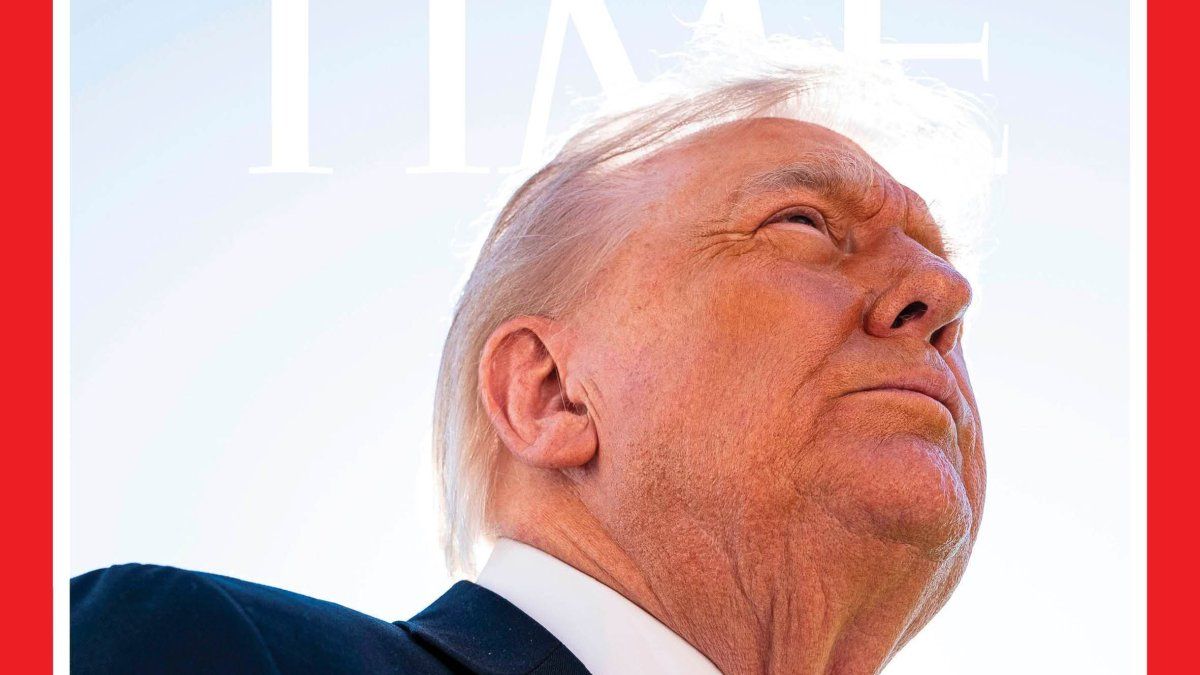Polarized primaries or polarization within primaries?
Although the results projected by the voting intention surveys showed that the distance between the first and second candidates did not allow us to speak strictly of Polarization, The truth is that, likewise, the two main parties settled their electoral contest basically between two people. In the case of Broad Front (FA)between Yamandu Orsi and Carolina Cosse; and in the case of National Party (PN)between Alvaro Delgado and Laura Raffo.
“There is a situation of polarization, if by that we understand when preferences are concentrated in two poles, in two pre-candidates,” he said. Ambit the doctor in Political Science and professor of the University of the Republic (UdelaR), Jaime Yaffé.
For the political analyst Mauro Casa, This polarization is not ideological – as it does occur between political parties – but rather occurs in terms of competence: “It is the logical consequence of how this electoral system is designed, because there is competition for a single prize, in this case the nomination for the Presidency of the Republic in each of the political groups.” To this logic is added, in addition, the “useful vote”which leads citizens to elect the candidates with the greatest chances of winning the general election.
Presidential Precandidates National Party
The non-internal attack was an unsaid rule among the candidates of the National Party and the Broad Front, who preferred to polarize at the party level.
Photo: @PNACIONAL
This is something that was observed in an increasingly pronounced way as the date of the internal elections approached, although open confrontation was constantly present at the intersections between parties. “Clearly the polarization is between the Frente Amplio, the only opposition party with a chance of contesting the government, and the National Party, which is the party of the current ruling party,” said Yaffé, for whom “this will probably be raised again.” in October”.
However, for Casa, the very nature of the primaries is what contributes to deepening polarization, beyond the numerical question. “Because it is a voluntary election, there is a bias in that the most politicized or ideologized voters participate much more, who tend to be more on the extremes of the left or right. That means that, perhaps, candidates positioned closer to these extremes are also chosen,” he pointed out. Something that, in turn, is a problem in the national election, not only because of the level of confrontation, but also because “many people do not see themselves represented by candidates who were chosen by the bases of the parties.”
The particularities of the campaign
Campaigns always have particularities, specificities specific to the situation that goes through them. Certainly, these inmates did not escape this: for example, the prominence of pre-candidate womenespecially in the case of Carolina Cosse who, although she remained behind Orsi in the polls of voting intention, the proximity did not allow the election to be closed early as did happen in the National Party where, likewise, Laura Raffo had great growth.
“This is the first time in history where there are actually women with significant support trying to obtain the nomination of their respective parties,” said Yaffé.
Cosse Raffo 2.jpg

Both Carolina Cosse for the Frente Amplio and Laura Raffo for the National Party fought for the presidential candidacy with strong support in their political spaces.
Another peculiarity was that the campaign agenda was “continually conditioned by information, events that the candidates do not have the capacity to control.” A concrete example that the political scientist pointed to was the leaks of judicial investigations and the Office of the Attorney General of the Nation that affect figures of the current government or linked to it. Corruption, fake news, the politicization of the judicial system, were issues that prevailed over the election itself.
The “less ideological distance between the parties and between the parties’ pre-candidates” also caught Casa’s attention: “We have reached a point of quite programmatic-ideological convergence“I see programs and proposals very moved towards the center, in most cases,” he considered. For him, “it is a competition of insiders, a structure of full caste precandidates”, while “those who compete are part of the political cast of the Uruguay”.
Consequently, there was “less audacity when making risky proposals” and there was a lack of “a concrete proposal that has managed to move the floor”, that permeates the general debate and circulates among citizens, for better or worse. On the contrary, the scandals were protagonists, and the campaign failed to inspire: “For those who are far from politics, this type of negative, dark campaign deepens the depoliticization because it leaves politics as something dirty, something distant from their lives, which does not solve their problems,” the analyst noted.
A transition campaign
The lack of historical leaderships of the main forces may have influenced the way the campaign for the internal elections was structured?
For Yaffé, this fact was not of great importance. “In the case of the Frente Amplio, the absence of (Tabaré) Vazquez and (Danilo) Astori and the loss of prominence in the party’s daily politics by (Jose Mujica; But new leaders have emerged that have replaced them quite naturally,” he said of the opposition.
In the case of the National Party, the transition between the historical figures of Luis Lacalle Herrera and Jorge Larrañaga, and the current references were also given “with a certain naturalness and have not introduced any major novelty in the way in which internal competition is developed and elucidated.”
Former presidents Uruguay.jpeg

Former presidents José Mujica, Luis Lacalle Herrara and Julio María Sanguinetti were also leaders of their respective parties.
On the other hand, for Casa “there is a transition of leadership in all parties.” “The National Party was the one that did it most successfully and much earlier, it already started this transition in 2014, when Luis Lacalle Pou “He started a presidential candidacy and for that he retired his father from active politics,” he said, adding that “in the other parties it has cost much more.”
“In the case of the Colorado PartyIt was difficult and more traumatic because attempts had already been made before, it’s not that (Julio María) Sanguinetti always remains a leader but attempts at renewal were made with (Pedro) Bordaberry and (Ernesto) Talviwho both leave politics, so the renewal was left without a head,” he said. Based on this, it is expected that the candidate who wins the internal elections – the most disputed of the three main forces – will be the one who positions himself as the next Colorado leader.
In the Frente Amplio, meanwhile, “it has not been so traumatic, it has been rather a transition that has depended on the biology”. “Although it has been a complicated process, it already has leadership: both Cosse, Orsi, and (Mario) Bergara They are already leaders in their sectors and will be in the coming years. They are politicians who are having an influence beyond the specific sector that supports them, and that is what a party leader does. Little by little they are becoming the authoritative voice of the entire Frente Amplio,” Casa analyzed.
Of course, despite being all professional politicianswhat he warned is that “it is an election of new candidates, almost all of them are, for the first time, running for office presidential race.” “It seems to me that this is very important, it speaks of a healthy system in which the political parties remain, but with renewed leaderships and with some new ideas,” he concluded.
Source: Ambito




